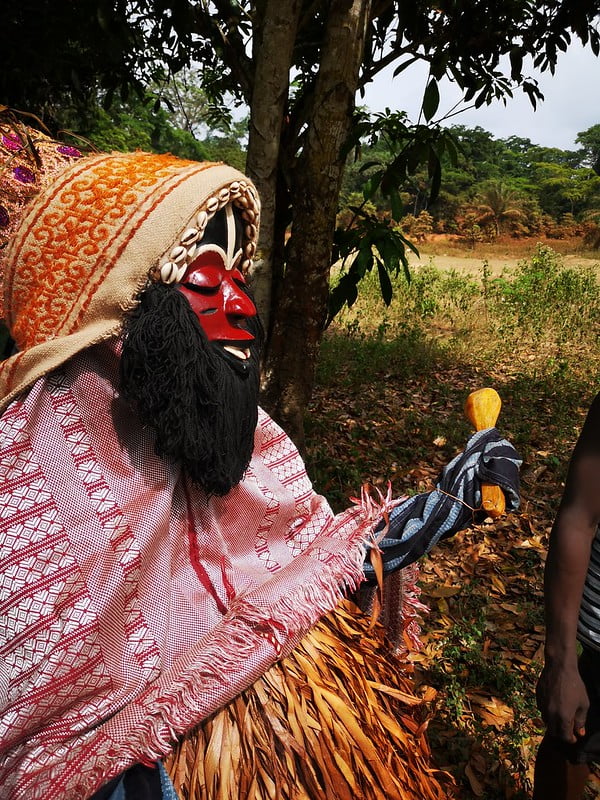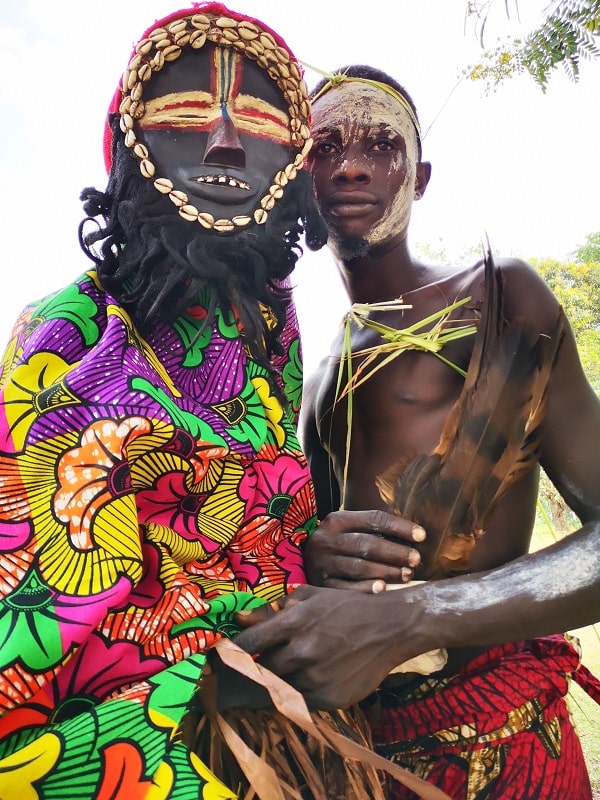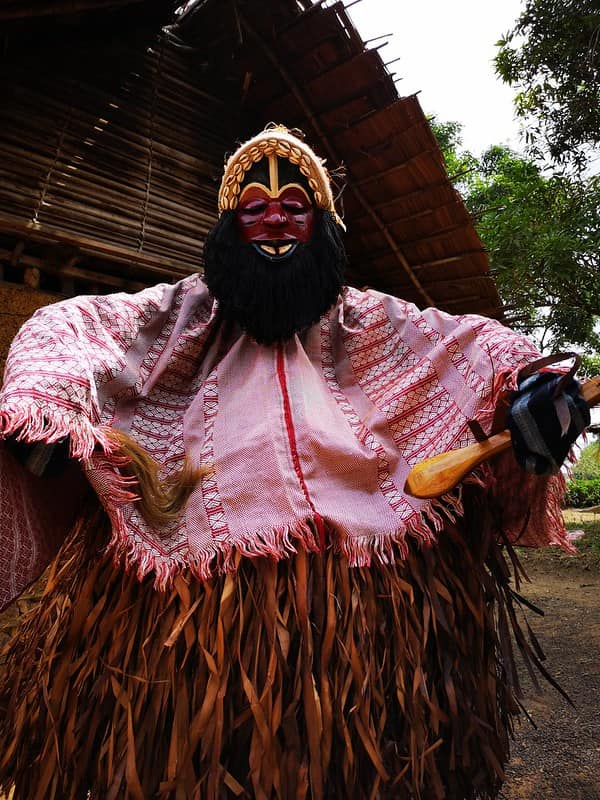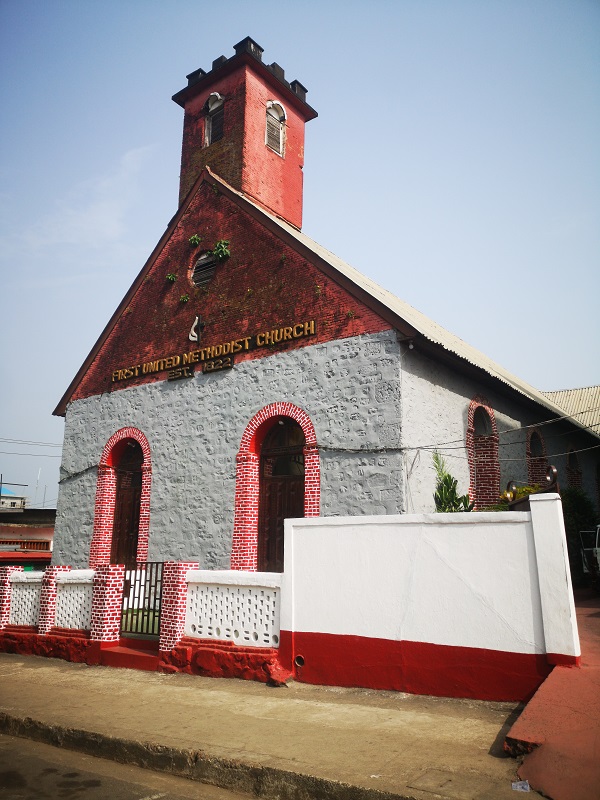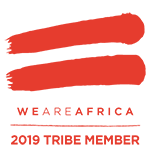REPUBLIC OF LIBERIA
Area: 111.369 km2
Population: 5.073.296 (July 2020 est.)
Life expectancy: about 64 years
Capital: Monrovia
Borders: to the north with Sierra Leone and Guinea, to the east with Côte d’Ivoire and to the south west with the Atlantic Ocean.
Ethnic groups: Kpelle 20.3%, Bassa 13.4%, Grebo 10%, Gio 8%, Mano 7.9%, Kru 6%, Lorma 5.1%, Kissi 4.8%, Gola 4.4%, Krahn 4%, Vai 4%, Mandingo 3.2%, Gbandi 3%, Mende 1.3%, Sapo 1.3%, (2008 est.)
Religion: Christian 85.6%, Muslim 12.2%, Traditional 0.6% (2008 est.)
Languages: English 20% (official), some 20 ethnic group languages
Vaccinations: Yellow fever, compulsory; Malaria prophylaxis, highly recommended.
Visa: single-entry visa needed. To be obtained prior the departure, at Embassy
TERRITORY, CLIMATE AND SEASONS
There are four regions parallel to the coast.
1. The coastal plains are approximately 350 miles (560 km) long and extend up to 25 miles (40 km) inland. They are low and sandy, with miles of beaches interspersed with lagoons, mangrove swamps and some rocky headlands: the highest is Cape Mount (about 305 meters above sea level) in the northwest, Cape Mesurado in Monrovia and Cape Palmas in the southeast .
2. Parallel to the coastal plains is a region of rolling hills about 20 miles (32 km) wide with an average maximum altitude of about 300 feet (90 meters); some hills rise up to 150 meters. It is a region suitable for agriculture and forestry.
3. Behind the rolling hills, most of the interior of the country is a plateau with low mountains ranging from 600 to 1,000 feet (180 to 305 meters) in elevation; some mountains reach 2,000 feet (600 meters).
4. A notable feature of the northern mountain plateaus along the Guinea border is Mount Nimba.
The climate, especially on the coast, is hot and humid all year round, dominated by a dry season from November to April and a rainy season from May to October. The dusty and dry harmattan (desert wind) blows from the Sahara to the coast in December, bringing relief from the high humidity.
HISTORY
1847 The Constitution modeled on that of the United States is drafted.
1847 July, Liberia becomes independent.
1917 Liberia declares war on Germany, giving the Allies a base in West Africa.
1926 Firestone Tire and Rubber Company open a rubber plantation on government-granted land. Rubber production becomes the backbone of the economy.
1936 Abolition of forced labor practices.
1943 William Tubman is elected president.
1944 The government declares war on the Axis powers.
1951 May, Women and indigenous property owners vote for the first time in presidential elections.
1958 Racial discrimination banned.
1971 Tubman dies and is succeeded by William Tolbert Jr.
1974 The government accepts aid from the Soviet Union for the first time.
1978 Liberia signs a trade agreement with the European Economic Community.
1979 More than 40 people are killed in riots following a proposed rise in the price of rice.
1980 Sergeant Major Samuel Doe carries out a military coup. President Tolbert and 13 of his aides are publicly executed. A People’s Redemption Council led by Doe suspends the constitution and assumes full powers.
1984 The Doe regime allows political parties to return under pressure from the United States and other creditors.
1985 Doe wins the presidential election.
1989 The National Patriotic Front of Liberia (NPFL) led by Charles Taylor begins a revolt against the government.
1990 The Economic Community of West African States (Ecowas) sends a peacekeeping force. Doe is executed by an NPFL splinter group.
1997 After several years of chaotic and frantic fighting, Taylor wins the presidential election. International observers declare the elections free and fair.
2000 July, stability remains fragile. The government reports the first attacks by rebels who identify themselves as Liberians United for Reconciliation and Democracy (LURD).
2003 March, the rebels arrive 10 km from Monrovia.
2003 July, the fighting intensifies; the rebels fight for control of Monrovia. Several hundred people are killed. The West African regional group Ecowas is committed to providing peacekeeping forces.
2003 August, Nigerian peacekeepers arrive. Charles Taylor leaves Liberia after handing over power to his deputy Moses Blah. US troops arrive. Interim government and rebels sign peace agreement. Gyude Bryant chosen to head the interim administration.
2003 September-October, US forces withdraw. The UN launches a major peacekeeping mission, deploying thousands of troops.
2005 November 23, Ellen Johnson Sirleaf becomes the first woman to be elected African head of state.
2006 February, the Truth and Reconciliation Commission is established to investigate human rights violations between 1979 and 2003.
2006 July, President Johnson Sirleaf lights street lamps powered by a generator in the capital, which has been without electricity for 15 years.
2007 June, Charles Taylor’s war crimes trial begins in The Hague, where he is accused of inciting atrocities in Sierra Leone.
2008 February, US President George W. Bush concludes an African tour of five countries with a visit to Liberia, one of America’s closest allies on the continent.
2008 March, Liberia conducts its first census since 1984.
2009 February, President Johnson Sirleaf admits to the Truth and Reconciliation Commission that she wrongly supported former President Charles Taylor when he launched the 14-year civil war in 1989.
2009 July, Truth Commission submits report to parliament, recommends prosecuting 200 people and listing others who should be excluded from public office, including President Johnson Sirleaf.
2011 October-November, Presidential elections. President Johnson Sirleaf wins re-election. Her main rival boycotted the second round.
2012 April, Former President Charles Taylor is found guilty of war crimes for helping and directing rebels in Sierra Leone. He is sentenced to 50 years of prison.
2013 January, the United Nations Refugee Agency completes a program that has helped over 155,000 Liberians return home, hailing it as proof of the return of peace after the civil war.
2014 July-October, Liberia announces emergency measures to combat the spread of the Ebola virus outbreak.
The World Health Organization says the spread of Ebola in West Africa is an international public health emergency and calls for a coordinated response. US President Obama announces that 3,000 US troops will be sent to West Africa to build new health facilities and train health workers.
2016 January, the UN declares Liberia and the whole of West Africa free from Ebola. More than 11,000 have died from the disease in West Africa since December 2013, 4,809 of them in Liberia.
2017 December, George Weah elected president.

